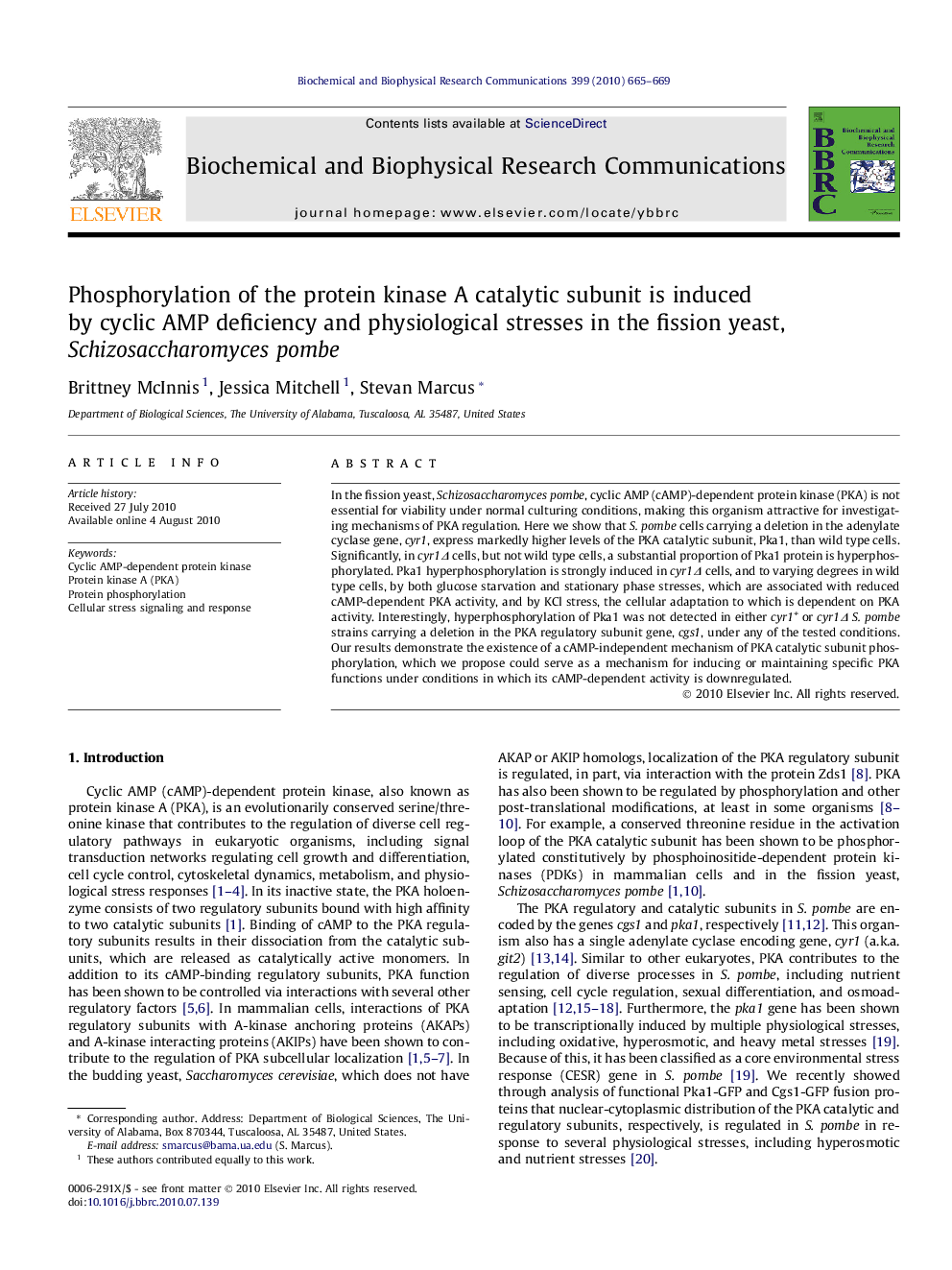| Article ID | Journal | Published Year | Pages | File Type |
|---|---|---|---|---|
| 1931667 | Biochemical and Biophysical Research Communications | 2010 | 5 Pages |
In the fission yeast, Schizosaccharomyces pombe, cyclic AMP (cAMP)-dependent protein kinase (PKA) is not essential for viability under normal culturing conditions, making this organism attractive for investigating mechanisms of PKA regulation. Here we show that S. pombe cells carrying a deletion in the adenylate cyclase gene, cyr1, express markedly higher levels of the PKA catalytic subunit, Pka1, than wild type cells. Significantly, in cyr1Δ cells, but not wild type cells, a substantial proportion of Pka1 protein is hyperphosphorylated. Pka1 hyperphosphorylation is strongly induced in cyr1Δ cells, and to varying degrees in wild type cells, by both glucose starvation and stationary phase stresses, which are associated with reduced cAMP-dependent PKA activity, and by KCl stress, the cellular adaptation to which is dependent on PKA activity. Interestingly, hyperphosphorylation of Pka1 was not detected in either cyr1+ or cyr1Δ S. pombe strains carrying a deletion in the PKA regulatory subunit gene, cgs1, under any of the tested conditions. Our results demonstrate the existence of a cAMP-independent mechanism of PKA catalytic subunit phosphorylation, which we propose could serve as a mechanism for inducing or maintaining specific PKA functions under conditions in which its cAMP-dependent activity is downregulated.
Research highlights► cAMP deficiency induces phosphorylation of PKA catalytic subunit (Pka1) in S. pombe. ► Pka1 phosphorylation is further induced by physiological stresses. ► Pka1 phosphorylation is not induced in cells lacking the PKA regulatory subunit. ► Results suggest that cAMP-independent Pka1 phosphorylation is stimulatory in nature.
